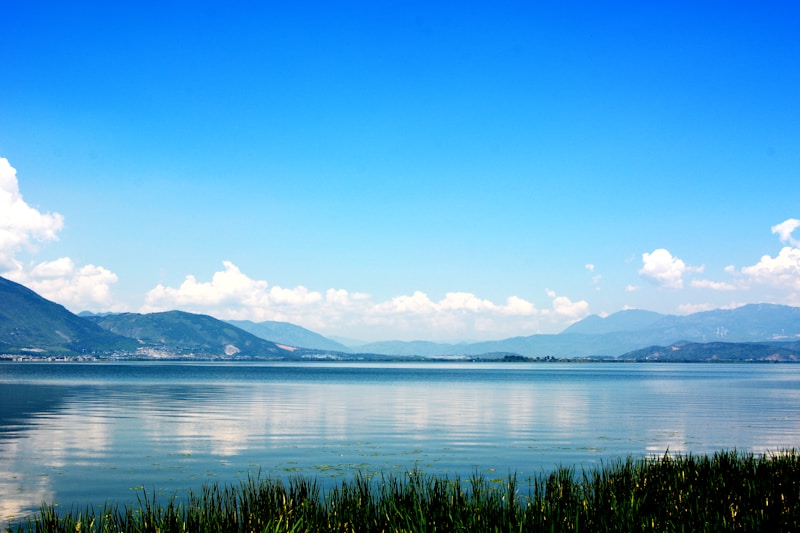Questions and Answers
What is the main focus of the Canadian Grade 9 Ecology Unit?
Understanding human impact on the environment
Which aspect of ecology is emphasized in the curriculum to mitigate human impact on the environment?
Sustainable practices
What does biodiversity refer to in the context of the Grade 9 Ecology Unit?
Variety of life forms within an ecosystem
Which of the following is NOT mentioned as a way in which human activities affect the natural world?
Signup and view all the answers
Why is it important for students to learn about population ecology in the Grade 9 Ecology Unit?
Signup and view all the answers
What is a key area of study within the Grade 9 Ecology Unit?
Signup and view all the answers
What do students explore in the Grade 9 Ecology Unit to understand the interactions within an ecosystem?
Signup and view all the answers
What concept do students study in population ecology to understand the overall balance of an ecosystem?
Signup and view all the answers
What do students examine to understand the delicate relationships between living organisms and their environment?
Signup and view all the answers
What does the Canadian Grade 9 Ecology Unit aim to equip students with?
Signup and view all the answers
Study Notes
The Canadian Grade 9 Ecology Unit is a vital part of the science curriculum, aiming to educate students about the intricate balance of the natural world, human impact on the environment, biodiversity, food chains and webs, population ecology, and ecosystems. This article will delve into each of these subtopics, providing a comprehensive understanding of the Grade 9 Ecology Unit.
Human Impact on the Environment
Human impact on the environment is a critical aspect of ecology that Grade 9 students in Canada explore. It covers the various ways in which human activities affect the natural world. This includes deforestation, pollution, overpopulation, and the depletion of natural resources. Students learn about the consequences of these actions on ecosystems, wildlife, and the planet as a whole. The curriculum also emphasizes the importance of sustainable practices to mitigate and reverse these impacts.
Biodiversity
Biodiversity is another fundamental concept within the Grade 9 Ecology Unit. Students discover the significance of biodiversity, which refers to the variety of life forms within an ecosystem. They learn about different species, ecosystems, and genetic diversity, as well as the crucial role biodiversity plays in maintaining ecological balance. Additionally, students explore the impact of human activities on biodiversity and the importance of conservation efforts to preserve it.
Food Chains and Webs
Understanding food chains and webs is an essential component of the Grade 9 Ecology Unit. Students delve into the relationships between organisms within an ecosystem, exploring how energy and nutrients are transferred through various trophic levels. They examine the interconnectedness of producers, consumers, and decomposers, and learn about the delicate balance that sustains these relationships. Additionally, students study the impact of environmental changes on food chains and webs.
Population Ecology
Population ecology is a key area of study within the Grade 9 Ecology Unit, focusing on the dynamics of population within ecosystems. Students learn about population growth, regulation, and the factors that influence population size. They also explore concepts such as carrying capacity, population density, and the impact of human activities on population dynamics. This provides a deeper understanding of how changes in population can affect the overall balance of an ecosystem.
Ecosystems
Ecosystems form the foundation of the Grade 9 Ecology Unit, offering a comprehensive view of the interactions between living organisms and their environment. Students study different types of ecosystems, such as forests, grasslands, and aquatic systems, and examine the intricate relationships between biotic and abiotic factors. They also explore the concept of ecological succession, the impact of disturbances on ecosystems, and the importance of preserving these systems for future generations.
In conclusion, the Canadian Grade 9 Ecology Unit provides students with a holistic understanding of the natural world and the impact of human activities on the environment. By exploring topics such as human impact on the environment, biodiversity, food chains and webs, population ecology, and ecosystems, students gain valuable insights into the delicate balance of nature and the importance of conservation efforts. This foundational knowledge equips them to become informed and responsible stewards of the environment, shaping a more sustainable future for generations to come.
Studying That Suits You
Use AI to generate personalized quizzes and flashcards to suit your learning preferences.
Description
Explore the vital topics within the Grade 9 Ecology Unit, including human impact on the environment, biodiversity, food chains and webs, population ecology, and ecosystems. Gain valuable insights into the delicate balance of nature and the importance of conservation efforts.




